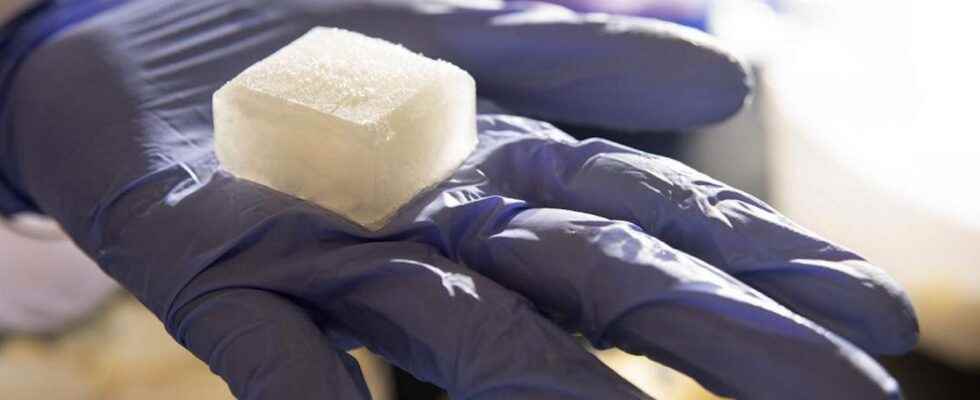Prevent an ice cube from melting. It is not possible. Unless, maybe if it’s not made … of ice cream! This is what researchers are proposing today. Ice cubes that do not melt and that could help further reduce the risk of product deterioration and cross-contamination in the food industry. But also in our daily life.
After their capture, it is important to refrigerate the fish as quickly as possible. To slow down action enzymatic, but also the proliferation of micro-organisms. Most often the operation is done at large reinforcement of crushed ice. But some University of California researchers (United States) are now proposing another solution. They have developed new generation ice cubes. Ice cubes primarily intended to improve refrigeration conditions in the food industry.
These ice cubes are plastic free. They don’t melt. They are reusable – a dozen times a priori. Then they are compostable. All thanks to more than 90% water and still some other components used to stabilize their structure. Gelatin derived from protein. And to make them even more sustainable, the researchers plan to use waste or agricultural by-products as refrigerants.
At room temperature, these ice cubes thus appear in the form of a transparent jelly. Which can be molded or cut to any shape you want. After freezing, they simply become hard and opaque.
New ice cubes that don’t melt or grow mold? UC Davis researchers just developed environmentally friendly ‘Jelly Ice Cube’ for food storage. https://t.co/3IGoaQDecK
– UC Davis Alumni (@CalAggieAlumni) November 26, 2021
Ice cubes with very useful properties
“You can count on them to effectively keep your food fresh for up to 13 hours. Then, you just have to collect them, rinse them with water and put them back in the freezer to use them again ”, explains Gang Sun, a professor at the University of California, in a communicated.
Keep your food cool for 13 hours
Tests show that these ice cubes can withstand up to 10 kilograms without undergoing deformation. And their antimicrobial properties allow us to consider using them instead of plastic refrigerating ice packs that we easily put in our coolers. Blocks on which, by dint of use, mold often develops.
These new ice cubes therefore present immediately tangible practical advantages. And others that it is perhaps worth highlighting. For example, as they do not melt, no more water flows in the markets in Pisces. Castings which can contaminate other products – thus also a way of limiting the food waste due to contaminations microbial – or finish their race in the sewers. As these ice cubes are reusable, they reduce water consumption in the food industry. Their stability also makes it possible to imagine reducing the risks of spoilage of foods that need to be kept cool.
Will they soon appear in our freezers?
Interested in what you just read?
.
fs3
